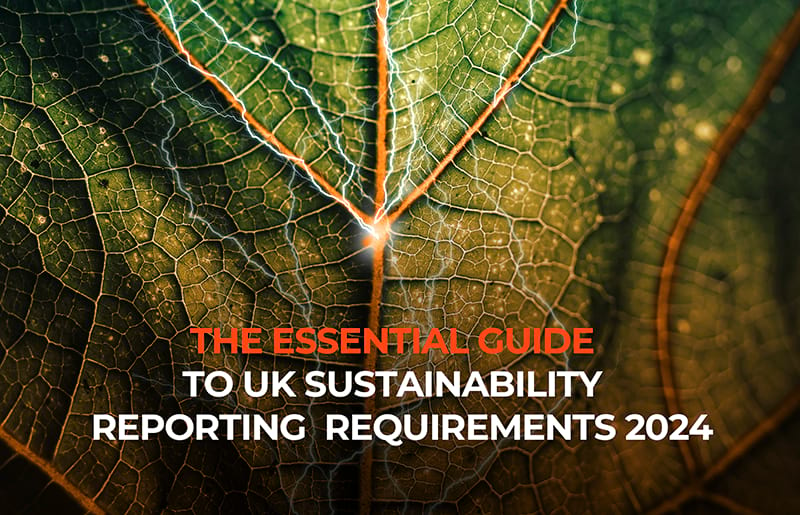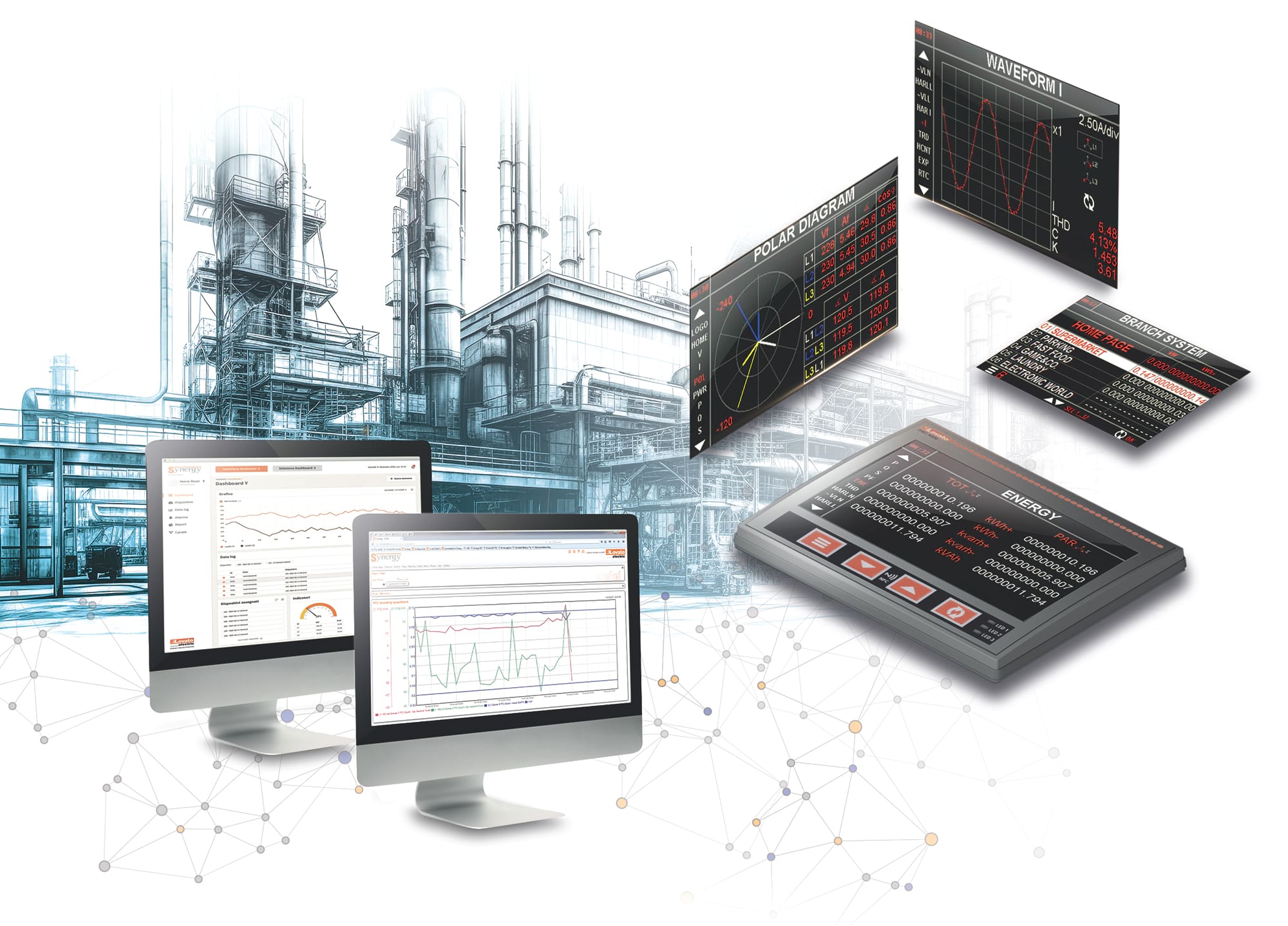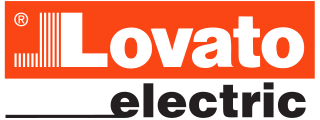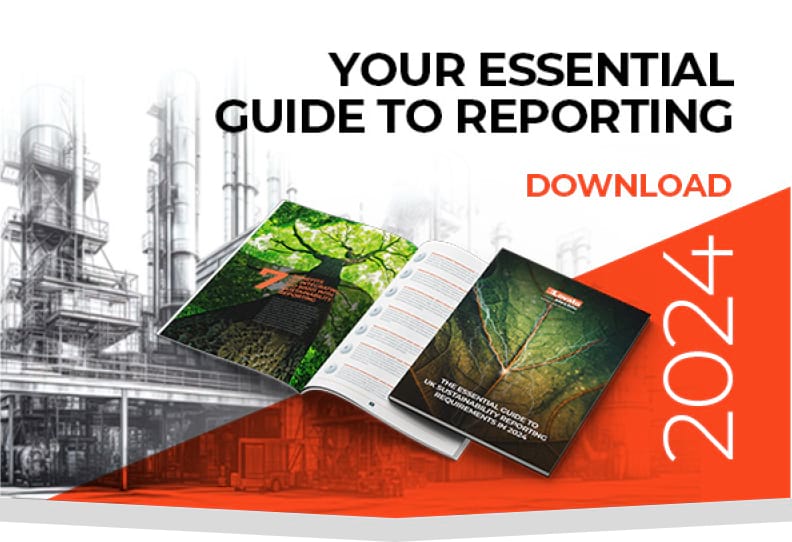
The essential guide to UK sustainability
reporting requirements 2024
reporting requirements 2024
Sustainability reporting has become an integral part of corporate governance worldwide, and the United Kingdom (UK) is no exception. With its commitment to combating climate change and achieving net-zero emissions by 2050, the UK has implemented stringent sustainability reporting requirements and regulations. For businesses operating in the UK, understanding, and complying with these regulations is essential. In this blog post, we’ll delve into the key laws, rules, and regulations governing sustainability reporting in the UK in 2024 and what they mean for businesses.
Streamlined Energy and Carbon Reporting (SECR)
One of the primary sustainability reporting requirements in the UK is the Streamlined Energy and Carbon Reporting (SECR). Introduced in 2019, SECR mandates large UK companies to disclose their energy use, carbon footprint, and greenhouse gas emissions in their annual financial reports. This applies to quoted companies, large unquoted companies, large, limited liability partnerships (LLPs), and academy trusts.

Under SECR, companies are required to report global scope 1 and 2 GHG emissions, at least one emissions intensity ratio, global energy usage, previous year emissions and energy data, and details of energy efficiency and emissions reduction projects. While reporting on scope 3 emissions is voluntary, it is recommended. SECR also includes a “comply or explain” provision, allowing companies to omit data, if necessary, provided they provide a valid explanation.
Financial Conduct Authority TCFD Reporting (FCA CRFD
The UK Financial Conduct Authority (FCA) requires companies with UK-listed shares or deposit receipts, as well as FCA-regulated asset managers and asset owners, to complete mandatory annual Task Force for Climate-Related Financial Disclosure (TCFD)-aligned climate disclosure reporting. This ensures that climate-related risks and opportunities are adequately addressed and disclosed in financial reports.
Department for Energy Security and Net-Zero Reporting
Following the division of the UK Department for Business, Energy, and Industrial Strategy (BEIS), the new Department for Energy Security and Net-Zero requires UK-registered companies with over 500 employees or £500 million in annual revenue to complete annual sustainability and climate-related disclosure reporting. These reports must address various aspects, including governance arrangements, principal climate-related risks, and opportunities, impacts on business models and strategies, resilience analysis, and performance against targets.
UK Sustainability Disclosure Standards (SDS)
The upcoming UK Sustainable Disclosure Standards (SDS) aim to centralise and unify the UK’s climate, sustainability, and ESG reporting requirements. Expected to be finalised by January 1, 2025, SDS will include ISSB S1 and S2 reporting, additional non-climate sustainability and ESG reporting disclosures, and a detailed transition plan outlining the path to net-zero emissions.
Energy Savings Opportunity Scheme (ESOS)
Additionally, the Energy Savings Opportunity Scheme (ESOS) mandates mandatory energy assessments for organisations in the UK meeting specific criteria. These assessments identify cost-effective energy-saving measures and must be carried out every four years
Conclusion: Navigating UK Sustainability Reporting
Navigating the landscape of UK sustainability reporting requirements can be complex, but it’s essential for businesses to stay compliant and contribute to the country’s sustainability goals. From SECR to FCA TCFD reporting and the upcoming UK SDS, understanding and adhering to these regulations not only ensure compliance but also demonstrate a commitment to environmental responsibility and sustainability. By staying informed and proactive, businesses can effectively manage their sustainability reporting obligations and contribute to a more sustainable future.
The Benefits of Integrating ISO 50001 with Sustainability Reporting
In the realm of sustainability reporting, integrating ISO 50001, the international standard for energy management systems, can significantly enhance the effectiveness and credibility of sustainability initiatives within an organisation. ISO 50001 provides a structured framework for establishing, implementing, maintaining, and improving energy management practices, leading to a range of benefits that complement and strengthen sustainability reporting efforts.

Enhanced Energy Performance: ISO 50001 helps organisations systematically identify energy consumption patterns, assess energy performance, and implement strategies for continuous improvement. By optimising energy efficiency and reducing energy waste, organisations can lower their environmental impact, decrease energy-related costs, and improve their overall sustainability performance.

Improved Data Accuracy and Reliability: Sustainability reporting relies heavily on accurate and reliable data related to energy consumption, greenhouse gas emissions, and other environmental metrics. Implementing ISO 50001 ensures that organisations have robust systems in place to collect, monitor, and analyse energy-related data, leading to more precise and trustworthy reporting outcomes.

Alignment with Global Best Practices: ISO 50001 is aligned with internationally recognised best practices for energy management, making it a valuable tool for organisations seeking to align their sustainability efforts with global standards and benchmarks. By adopting ISO 50001, organisations can demonstrate their commitment to sound energy management principles and enhance their credibility in the eyes of stakeholders and investors.

Integration with Other Management Systems: ISO 50001 is designed to be compatible with other management system standards, such as ISO 14001 (environmental management) and ISO 9001 (quality management). Integrating ISO 50001 with existing management systems enables organisations to streamline their sustainability reporting processes, minimise duplication of efforts, and achieve synergies across different aspects of their operations.

Regulatory Compliance and Risk Mitigation: ISO 50001 provides a structured approach to compliance with energy-related regulations and requirements. By adhering to ISO 50001 standards, organisations can ensure that they meet legal obligations related to energy management and mitigate the risks associated with non-compliance, such as fines, penalties, and reputational damage.

Stakeholder Engagement and Transparency: Sustainability reporting is not only about meeting regulatory requirements but also about engaging stakeholders and fostering transparency. ISO 50001 facilitates stakeholder engagement by providing a systematic framework for communicating energy management goals, performance data, and improvement initiatives. By transparently disclosing their energy management practices, organisations can build trust with stakeholders and enhance their reputation as responsible corporate citizens.

Continuous Improvement and Innovation: ISO 50001 emphasises the importance of continuous improvement and innovation in energy management. By fostering a culture of innovation and learning, organisations can identify new opportunities for energy efficiency, explore alternative energy sources, and drive sustainable innovation across their operations. This proactive approach to energy management not only leads to cost savings but also positions organisations as leaders in sustainability and resilience.
LOVATO’s commitment to energy management
LOVATO Electric is excited to announce that we have achieved the ISO 50001 certification, which covers energy management systems (EnMS). This international standard ensures that LOVATO has systems and processes in place to increase energy efficiency, reduce costs, AND IMPROVE ENVIRONMENTAL SUSTAINABILITY – a cause certainly becoming more important as years go by.

Achieving ISO 50001 certification demonstrates LOVATO Electric’s commitment to responsible energy use. By taking a systematic approach to managing our energy, we will reduce the impact that we leave on the environment. The certification also allows LOVATO Electric to lead by example in promoting energy management best practices amongst peers in the electrical engineering industry.
Better control and automation with Synergy from LOVATO
Synergy offers a complete solution for the management of energy consumption with products capable of monitoring the network and state-of-the-art management of the loads and consumption of installations as well as automated reporting, saving valuable time and resource for your business.
Synergy is fully compliant with EN ISO 50001 “Energy Management systems” and also allows checks on all environmental and process information (operating status, alarms, etc.)
Quickly and easily create customisable pages with widgets for charts, data tables, measure indicators and alarm conditions with functionality to automate data reports, saving valuable time and effort.

Find out more about Synergy and LOVATO’s range of automation and control solutions by calling our experts on 01384 899700 or emailing us on sales@lovato.co.uk
Keep up with the latest news from Lovato Electric by following us on LinkedIn.

